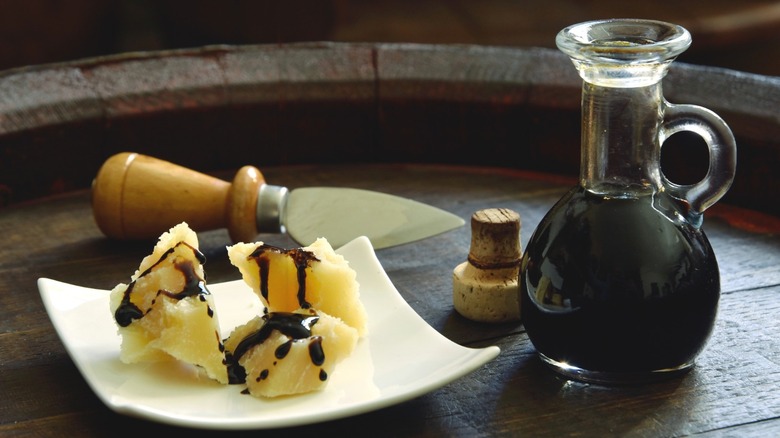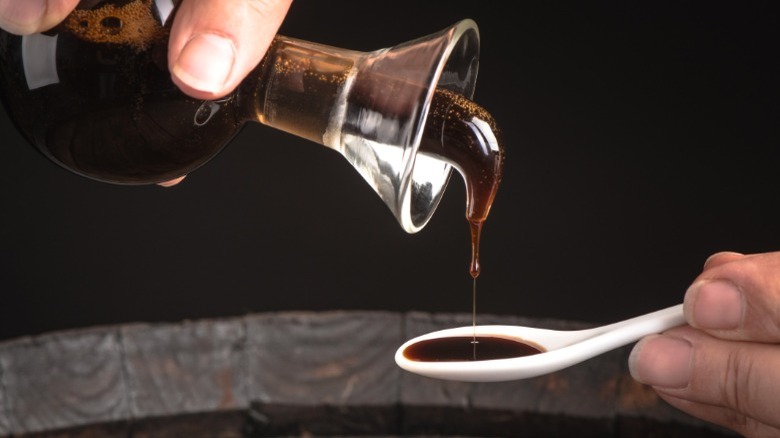The Real Health Benefits Of Balsamic Vinegar
Hungry humans have been enjoying the delights and health benefits of balsamic vinegar for over 1,000 years. The first record of balsamic vinegar dates back to the year 1046 when the emperor of the Holy Roman Empire was offered a "so very perfect vinegar" while on a voyage through the Piedmont region in Italy (via Italy Magazine).
Interestingly, balsamic vinegar is technically not vinegar. Northeastern University physicist John Swain, reporting for the Boston Globe, points out that real vinegar is derived from wine by fermenting the alcohol into acetic acid. Balsamic vinegar is created using the juice of white grapes, most frequently the Trebbiano varietal.
The ecosystem of balsamic vinegar is also more complex than you might have realized, with different varieties and designations of purity. The traditional, highly regulated version, goes through a detailed certification process. It ends with the bottle bearing a label with an official certification stamp, is produced only in Modena or Reggio Emilia, according to Serious Eats. This is the version you would drizzle over parmesan cheese or fruit.
For salad dressing, you most likely use condimento balsamico, which is made the same way as traditional balsamic vinegar but cannot receive the official designation. This version is also much more affordable. Alternatively, you may have also used a variety with "I.G.P" listed on the label. This designation guarantees that, while the grapes can be grown anywhere, they are the correct variety and were processed in Modena (via Serious Eats).
How balsamic vinegar impacts your health
If you're a fan of balsamic vinegar simply for its sweet and luscious flavor, you'll be happy to know that you've also been doing your body good. According to MedicalNewsToday, balsamic vinegar is known to provide a number of health benefits. Looking to maintain healthy skin? Consuming balsamic vinegar can help with that. This is because balsamic vinegar contains antioxidants and other components that can help with your complexion. However, it is important to note that, while there are other types of vinegar you can put directly onto your face, make sure to keep balsamic vinegar only on your food.
MedicalNewsToday also reports that eating balsamic vinegar as part of a meal can help to manage blood sugar levels, support healthy digestion, lower cholesterol, and promote weight loss. Although it requires further study, balsamic vinegar has been used to treat wounds with its anti-fungal characteristics.
While consuming balsamic vinegar is considered safe, there are a few risks to keep in mind, including the possibility of an upset stomach and throat inflammation. Also, avoid consuming too much to prevent harming your esophagus. Limit your portion to 2 tablespoons to prevent these and other potential issues (via MedicalNewsToday).


